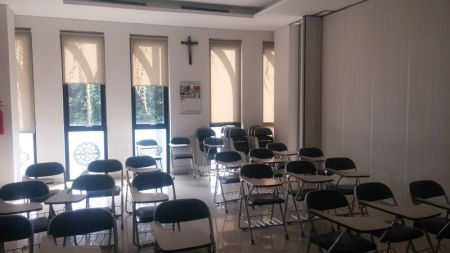Michigan Supreme Court to decide if religious schools qualify for $2.5M reimbursement to maintain safety standards

Michigan’s highest court heard oral arguments in a case over whether the state can provide funds to private and religious schools to maintain state-mandated health and safety regulations, despite a state constitutional amendment barring public funding of nonpublic schools.
The Michigan Supreme Court heard arguments Tuesday in the case of Council of Organizations and Others for Education about Parochiaid v. State of Michigan.
At issue was a law passed in 2016 that allocated $2.5 million to reimburse private schools for the cost of complying with state-mandated health, safety, and welfare regulations.
The lawsuit against reimbursing private schools filed by a coalition of groups, including the ACLU of Michigan, Michigan Parents for Schools, Middle Cities Education Association, and Kalamazoo Public Schools.
According to critics, the allocation violates Article VIII, Section 2 of the state constitution, passed in 1970 as Proposal C, which prohibits public funds from going to nonpublic schools and states:
“No public monies or property shall be appropriated or paid or any public credit utilized, by the legislature or any other political subdivision or agency of the state directly or indirectly to aid or maintain any private, denominational or other nonpublic, pre-elementary, elementary, or secondary school,” reads the section.
"No payment, credit, tax benefit, exemption or deductions, tuition voucher, subsidy, grant or loan of public monies or property shall be provided, directly or indirectly, to support the attendance of any student or the employment of any person at any such nonpublic school or at any location or institution where instruction is offered in whole or in part to such nonpublic school students.”
In an amicus brief, the Michigan Catholic Conference and the Michigan Association of Non-Public Schools argue that the state amendment is anti-Catholic and should be struck down.
“Proposal C, colloquially called the ‘Parochiaid Amendment,’ was intended to prevent Catholic schools, specifically, from receiving the same state funding as Protestant-influenced public schools. Indeed, the term ‘Parochiaid’ itself is strong evidence of this intent,” they said.
Public Funds Public Schools, a national campaign opposed to public aid of private schools, filed an amicus brief arguing that the amendment protects public schools from losing funds.
“Public school underfunding was the pivotal concern for voters when they approved adding the no-aid clause to the Education Article in 1970, and it is a more severe problem today,” the group said.
“Thus, the very same conditions that led voters to prohibit nonpublic school funding exist with even greater urgency now, and call into question the state’s ability to fulfill its affirmative obligation — also enshrined in Section 2 — to ‘maintain and support’ a system of free public education.”
The suit against the allocation was filed in March 2017, with Michigan Court of Claims Judge Cynthia Diane Stephens declaring the allocation unconstitutional in an April 2018 ruling.
In October 2018, a three-judge panel of the Michigan Court of Appeals overturned the decision, ruling 2-1 that the state constitutional amendment allowed for the reimbursements.
“Such actual costs incurred by a private school are for the purpose of protecting the health and welfare of its students, removing a hazard that could seriously jeopardize the health of a student,” ruled the majority.
“Proposal C permits aid to private schools, so long as it is merely incidental to the private school’s support and maintenance.”
The oral arguments before the Michigan Supreme Court come months after the United States Supreme Court ruled 5-4 that religious schools in Montana can qualify for a state tax credit program even though their state constitution bans public aid to religious entities.
In late June, the nation’s highest court ruled in Espinoza v. Montana Department of Revenue that parents could use a public scholarship program to send their children to private religious schools.
“Montana’s no-aid provision bars religious schools from public benefits solely because of the religious character of the schools. The provision also bars parents who wish to send their children to a religious school from those same benefits, again solely because of the religious character of the school,” wrote Chief Justice John Roberts for the majority.
“A State need not subsidize private education. But once a State decides to do so, it cannot disqualify some private schools solely because they are religious,” Roberts added.





















